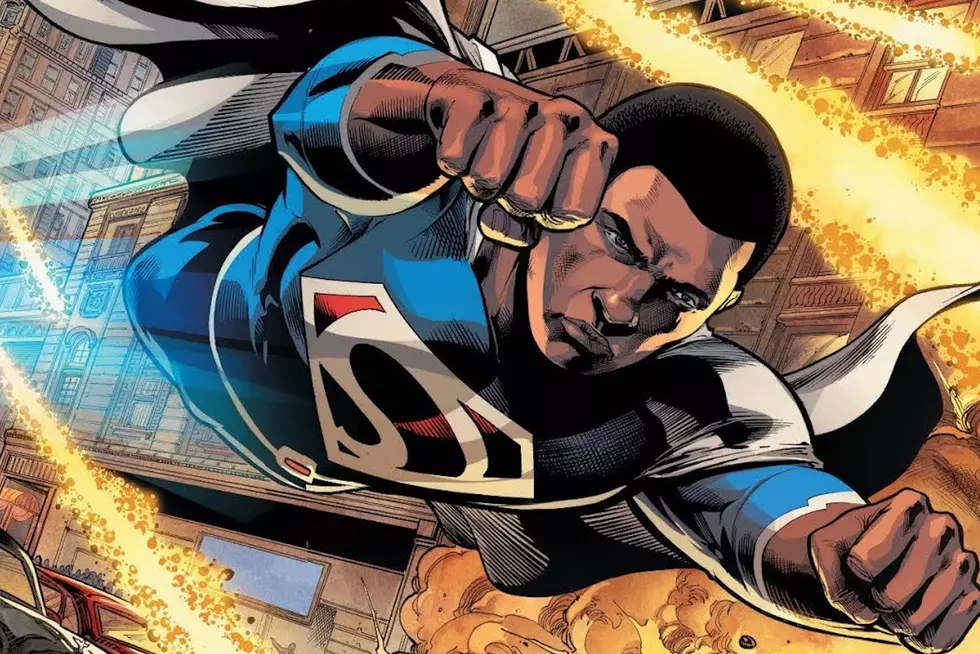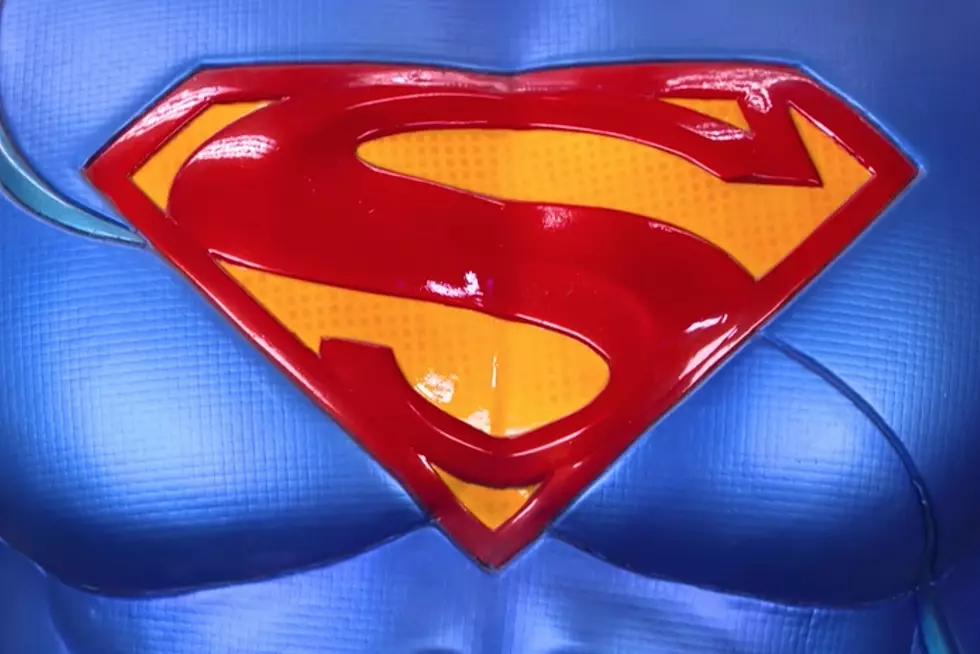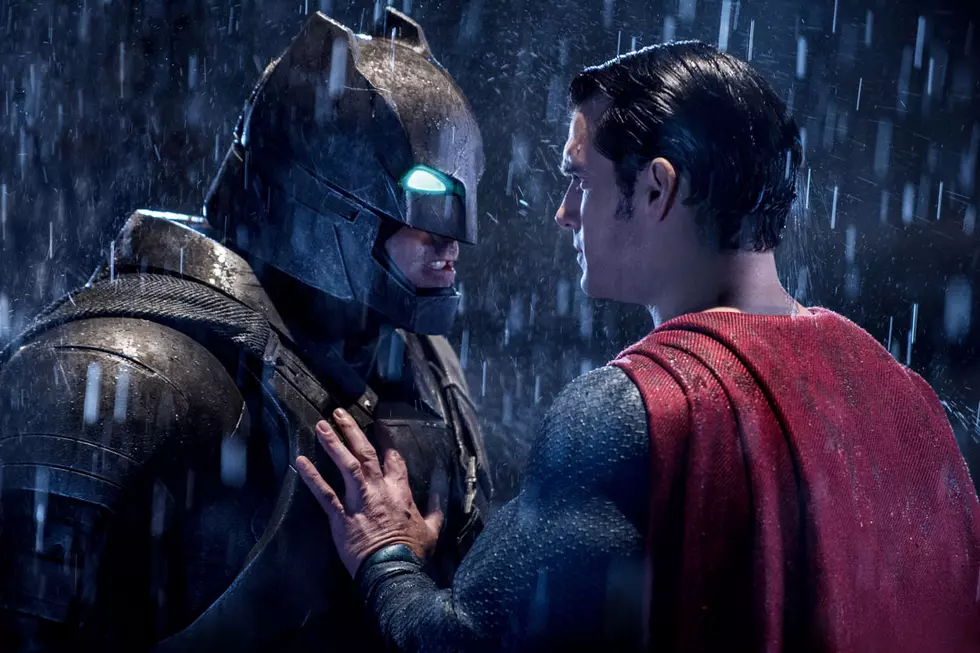
Legendary DC Comics Artist Jerry Ordway Doesn’t Want To Be Legendary, He Wants To Work

It's been circling around the internet for a bit, but if you haven't seen it, Jerry Ordway -- writer and artist whose work on DC Comics' core superhero characters (most notably Superman) contributed greatly to the company's success in publishing and other media over the past several decades -- penned a powerful essay on the subject of ageism in the comics industry, citing his lack of regular work in recent years and discussing his feeling that he's been slowly phased out of DC Comics' plans for the future.
While Ordway himself does continue to get some freelance work and keeps busy in the art collectors market, his thoughts on the changing trends at DC, Marvel and other work-for-hire employers reflect those of many veteran creators whose work formed the bedrock of a lot of the comics and media that are still produced today, but who find themselves on the relative outskirts of the industry. Like many creators and their loyal fans, Ordway thinks he's deserving of more -- not of more praise or even money, but of more opportunities to simply work.In these compelling excerpts from Ordway's essay, the writer and artist explains that while he's honored to have acquired his reputation as one of the all-time superhero greats, he believes (rightly) that he has too much to contribute before stepping back into the role of elder statesman.
I am thrilled to be well remembered, and respected in the comic book community, and to have fans willing to pay me to draw commissions, but I got into comics in order to tell stories, not to draw custom art. I still feel vital, and still want to be at that table....
... I'm not retired, I'm not financially independent. I'm a working guy with a family, working for a flat page rate that hasn't changed substantially since 1995. I may have opportunities at smaller companies, companies that pay less per page than I made in 1988, with no royalties or ownership of any kind. I'm not at all looking down at that, but it is hard to reconcile, as I can't work faster, and refuse to hack my work out to match the rate. I have pride in what I do, and always have....
...My work is still sharp, my mind is still full of stories to tell, and I'm still willing to work all hours of my day to meet my deadlines. Why am I out of work from the publishers? Why are my friends, people who turned in great work, worthy of hardcover and trade paperback reprints, not able to get work?
...I want to work, I don't want to be a nostalgia act, remembered only for what I did 20, 30 years ago.
Numerous creators, journalists and fans have chimed in since Ordway posted his thoughts over the weekend, offering thoroughly justified support for Ordway and creators like him. As he says, Ordway was an integral part of the success of DC Comics for decades, particularly with his definitive work on the modern Superman mythos which he, John Byrne and Marv Wolfman revamped to massive, long-lasting success in the late 1980s. Ordway was one of the creators who delivered DC with one of its greatest hits with the Death of Superman in the 1990s, and Ordway and his collaborators' work with Superman informed the character's depictions on television in Lois & Clark: The New Adventures of Superman and in Superman: The Animated Series. The Death of Superman was very nearly made into a film by Tim Burton and Nicolas Cage. As such it's no surprise that he's received such an outpouring of support over the course of the last few days. It also helps that his essay was both well written and emotionally sincere without coming off as bitter in any way.

Ordway still has much to offer. He is a gifted artist and an expert draftsman, and if you look at all 52 of DC's current monthly titles, it's certainly not the case that each book is staffed with artists whose work is superior to his. The man understands how to tell a story, yet finds himself on the outside looking in with respect to the characters he loves and, in some respects, helped redefine.
Is this ageism? Not in the strictest definition of the term. If a 25-year-old artist who emulated Ordway showed a portfolio with work similar to his, I get the feeling he'd have the same difficulty getting work at DC as Ordway is right now. I think it's more a matter of changing tastes from publishers and, presumably, fans. If Howard Hawks were still alive and pitched a screwball comedy today to a big budget movie studio, that mirrored the style of His Girl Friday or Twentieth Century, he'd likely be dismissed out of hand. That wouldn't make his idea any less brilliant.

When I edited comics, I was able to hire or work with several artists who are long-time veterans of the industry: Michael Kaluta, Jordi Bernet, Bryan Talbot, and Rick Geary, just to name a few. However, these artists aren't associated exclusively, or in some cases even at all, with superhero books, nor were they hired to work on tales of capes and tights. Superhero stories, the realm in which Ordway has honed his craft for over 30 years, are a completely different animal and always have been. For good or ill, DC Comics have changed the style of their superhero books for the foreseeable future, as they have at various points in the past -- including when Ordway himself was coming up, although the aesthetic divide wasn't as great then as it is now.
Personally, I find the very thought of Ordway drawing Superman with a high collar and excessive lines all over his costume to be borderline depressing (and that is in no way a commentary on Ordway). He'd certainly be a wonderful addition to DC as a teacher of sorts, demonstrating storytelling to younger editors and artists who could learn from his years of experience and expertise. But that is not what Ordway wants. He wants to be in on the action. He wants to tell stories. Even the quickest glance at some of the selections we've included in this post and that he displays on his blog demonstrate that he's still as sharp as ever.

There's also the financial consideration. As Ordway mentioned in the excerpt above, his older work is regularly reprinted and has been enjoyed by readers for years. Unfortunately, the money some creators earn on reprints is quite meager, which means he has to keep producing new work. From his essay:
... On a recent Absolute Infinite Crisis hardcover, I had 30-odd pages reprinted in there, a book that retailed for over a hundred dollars-- a book that DC never even gave me a copy of, and the royalty amounted to a few dollars, I couldn't buy a pizza on that windfall.
Obviously Ordway makes a compelling case for himself and his peers, but where we all run into uncertainty is on the question of entitlement.
Do I think DC comics owes me anything? Yes and no. I understand that no company owes anything that isn't contractually stipulated, but in my heart, I think I deserve better than being marginalized over the last 10 years...
...As to my part in the history of DC for the past 33 years, I was a highly visible and successful part of it, not a minor footnote...
Ordway admits that he thinks DC owes him to some extent. I'm not sure how true that is. As upsetting as it may be to hear (and to say), that simply isn't the reality of work-for-hire business, and it never was. Publishers like DC and Marvel hire artists to work on the characters they own. Your work for them is just that: work for them. The various moral issues behind that will be debated ad infinitum, both in comics and beyond, but that doesn't change the facts. Ordway is not the first person this has happened to in comics, which is what gave way to the creator-owned business model that is commonplace these days. That model is a potential solution that Ordway's generation seems to rarely avail themselves of, possibly because the work-for-hire system was so robust for so many years, or possibly because -- particularly in the case of someone like Ordway -- they simply want to tell stories about the characters they love, and there's absolutely nothing wrong with that. But things have changed, as they always do, and creators like Ordway have found themselves asking some painful questions.
With all that said, what's the answer? What's to be done? After thinking about it for days, I honestly still don't know. I'm not sure anyone does. What I do know is this:
Jerry Ordway is an incredibly talented artist who sincerely and deeply loves DC Comics' characters as much as anyone, yet he finds himself on the outside looking in, hoping for another opportunity. And the fact that there's no easy answer to that is as alarming as it is sad.

More From ComicsAlliance









